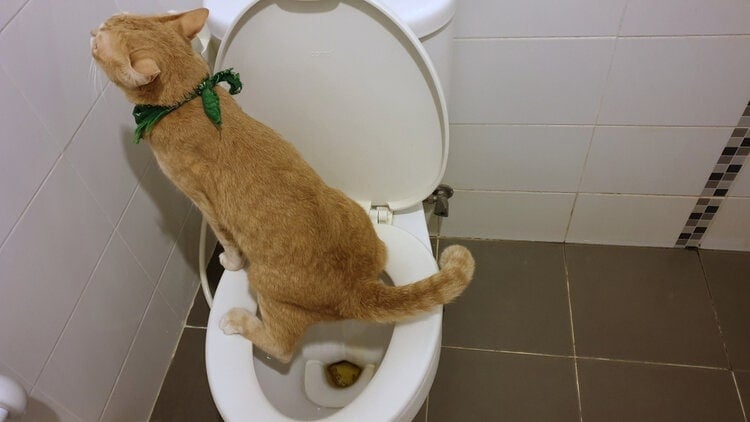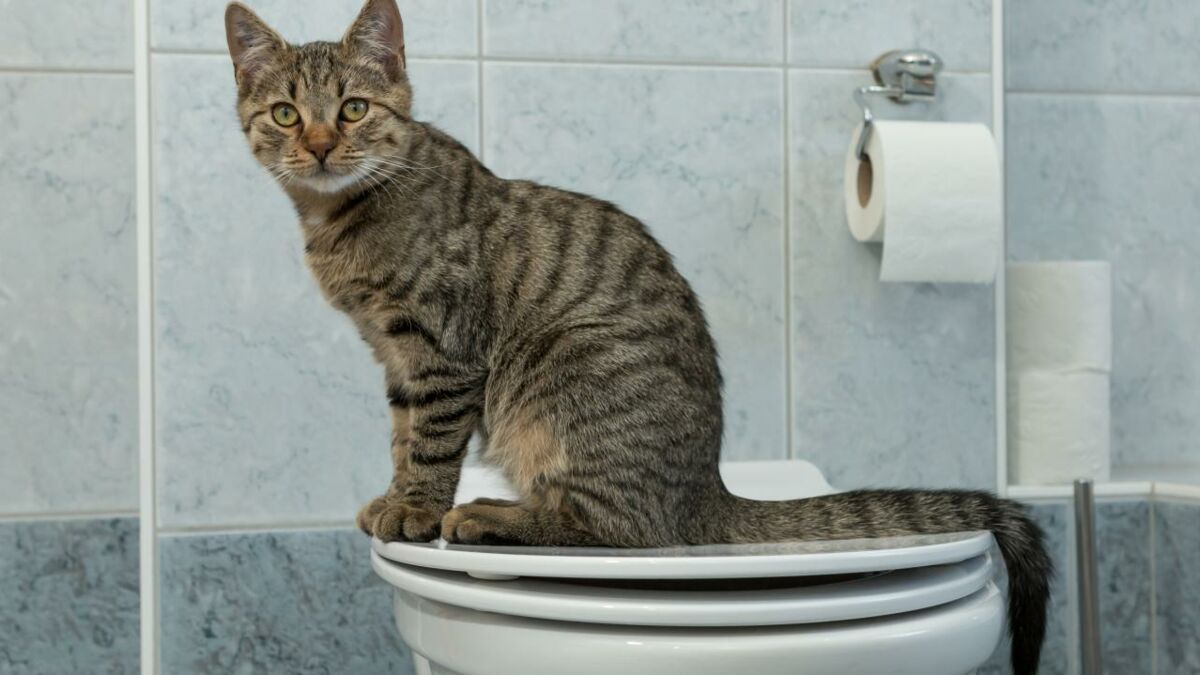Avoid Flush Cat Poop Down Your Toilet - Preserve Your House's Pipe Integrity
Avoid Flush Cat Poop Down Your Toilet - Preserve Your House's Pipe Integrity
Blog Article
Just how do you actually feel in regards to Can You Flush Cat Poop Down The Toilet??

Intro
As pet cat proprietors, it's essential to be mindful of how we get rid of our feline good friends' waste. While it might seem hassle-free to purge feline poop down the bathroom, this practice can have detrimental consequences for both the setting and human health and wellness.
Alternatives to Flushing
The good news is, there are more secure and a lot more accountable ways to take care of feline poop. Consider the adhering to options:
1. Scoop and Dispose in Trash
The most typical method of disposing of feline poop is to scoop it right into a naturally degradable bag and toss it in the trash. Be sure to utilize a devoted clutter scoop and deal with the waste promptly.
2. Usage Biodegradable Litter
Select naturally degradable pet cat trash made from materials such as corn or wheat. These litters are eco-friendly and can be safely thrown away in the garbage.
3. Bury in the Yard
If you have a yard, think about burying cat waste in an assigned area far from vegetable gardens and water resources. Make sure to dig deep adequate to stop contamination of groundwater.
4. Install a Pet Waste Disposal System
Invest in an animal waste disposal system particularly created for feline waste. These systems utilize enzymes to break down the waste, lowering smell and ecological effect.
Health Risks
In addition to ecological worries, flushing cat waste can also posture health and wellness risks to humans. Pet cat feces may contain Toxoplasma gondii, a bloodsucker that can trigger toxoplasmosis-- a possibly serious illness, specifically for expecting females and individuals with damaged immune systems.
Ecological Impact
Flushing pet cat poop introduces harmful microorganisms and bloodsuckers into the water supply, positioning a substantial risk to water ecological communities. These contaminants can negatively affect aquatic life and concession water top quality.
Conclusion
Responsible animal ownership prolongs past supplying food and sanctuary-- it additionally entails correct waste management. By avoiding flushing cat poop down the commode and going with different disposal techniques, we can lessen our environmental footprint and shield human health.
Why You Should Never Flush Cat Poop Down the Toilet
A rose by any other name might smell as sweet, but not all poop is created equal. Toilets, and our sewage systems, are designed for human excrement, not animal waste. It might seem like it couldn’t hurt to toss cat feces into the loo, but it’s not a good idea to flush cat poop in the toilet.
First and foremost, assuming your cat uses a litter box, any waste is going to have litter on it. And even the smallest amount of litter can wreak havoc on plumbing.
Over time, small amounts build up, filling up your septic system. Most litter sold today is clumping; it is made from a type of clay that hardens when it gets wet. Ever tried to scrape old clumps from the bottom of a litter box? You know just how cement-hard it can get!
Now imagine just a small clump of that stuck in your pipes. A simple de-clogger like Drano isn’t going to cut it. And that means it’s going to cost you big time to fix it.
Parasitic Contamination
Believe it or not, your healthy kitty may be harboring a nasty parasite. Only cats excrete Toxoplasma in their feces. Yet it rarely causes serious health issues in the cats that are infected. Most people will be fine too if infected. Only pregnant women and people with compromised immune systems are at risk. (If you’ve ever heard how women who are expecting are excused from litter cleaning duty, Toxoplasma is why.)
But other animals may have a problem if infected with the parasite. And human water treatment systems aren’t designed to handle it. As a result, the systems don’t remove the parasite before discharging wastewater into local waterways. Fish, shellfish, and other marine life — otters in particular — are susceptible to toxoplasma. If exposed, most will end up with brain damage and many will die.
Depending on the species of fish, they may end up on someone’s fish hook and, ultimately on someone’s dinner plate. If that someone has a chronic illness, they’re at risk.
Skip the Toilet Training
We know there are folks out there who like to toilet train their cats. And we give them props, it takes a lot of work. But thanks to the toxoplasma, it’s not a good idea.

I'm just very taken with How to Dispose of Cat Poop and Litter Without Plastic Bags and I really hope you liked the blog posting. I beg you set aside a second to share this blog post if you enjoyed reading it. Many thanks for your time spent reading it.
Explore Now Report this page